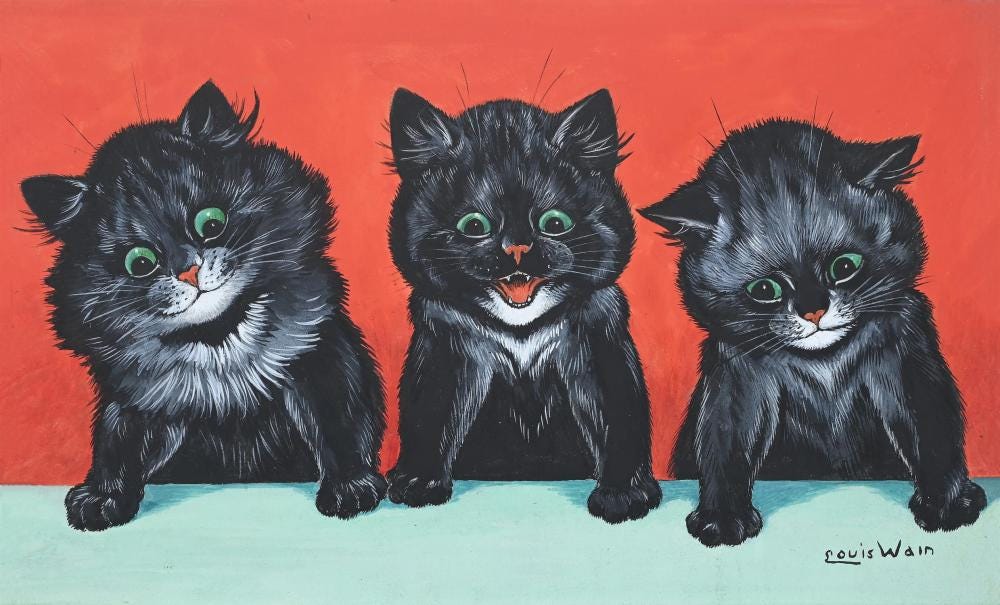The Year Crossing Noodle
On yet another year of not meeting George Washington
I’m celebrating the new year with a steaming bowl of buckwheat noodles, with a bowl of year-crossing noodles, as they’re called in Japan. The custom operates on a common, perhaps universal magical principle, easy enough to understand, the transference of metaphorical properties. Buckwheat is a weedy, prolific crop, flourishing under all sorts of adverse conditions, in nutrient poor and acidic soils, in cold climates with short growing seasons. It’s a crop that can withstand the vicissitudes of life. The seeds have a distinctive tetrahedral shape; when milled, they produce a coarse dark flour rich in protein and dietary minerals. Unlike other staple crops, buckwheat is not a grain like rice or wheat but is closer in its phylogeny to cacti and carnations. The plant kingdom admits to all sorts of unlikely kinships. The noodles, with their long noodle shape, symbolize longevity. They’re served in a shoyu or soy sauce broth with radish, fishcake, and seaweed. It’s as simple as that.
These luck-bringing rituals reflect a harsh and uncertain life, before the advent of medicine, insurance, and social safety provisions. A harsh life produces harsh customs. In medieval Europe, castles were blessed by sealing a live black cat within their wall. I learned about this particular custom while visiting Brittany, in Northern France. One of these unfortunate animals was discovered through renovations on Combourg, the ancestral home of the writer Chateaubriand. In his book Memoirs from Beyond the Grave, he describes the lonely nights he spent in Combourg, with only a ghostly black cat as companion. He could not have known about the actual cat walled up inside his home, since it wasn’t discovered until more than a century later. The poor mummified creature is kept on display in glass case, its face seized into a terrible death rictus.
The tour guide who related this story justified the custom, saying that the cat was Chateaubriand’s spiritual guardian. Without its assistance, he might not have written his famous novels and memoirs; he might not have gone on his travels to North America and met George Washington in Philadelphia, though contemporary historians doubt this event actually took place. As for myself, I’m in Philadelphia right now, having moved to the city during what is now, as of January 1st, last year. It’s even less likely for me or any of my hypothetical ancestors to meet George Washington than it was for Chateaubriand, unlikely as that was to begin with, but even so I will not kill a cat to increase this likelihood nor the likelihood of any other event. I will content myself with a bowl of noodles, which should grant me all the luck I need.


